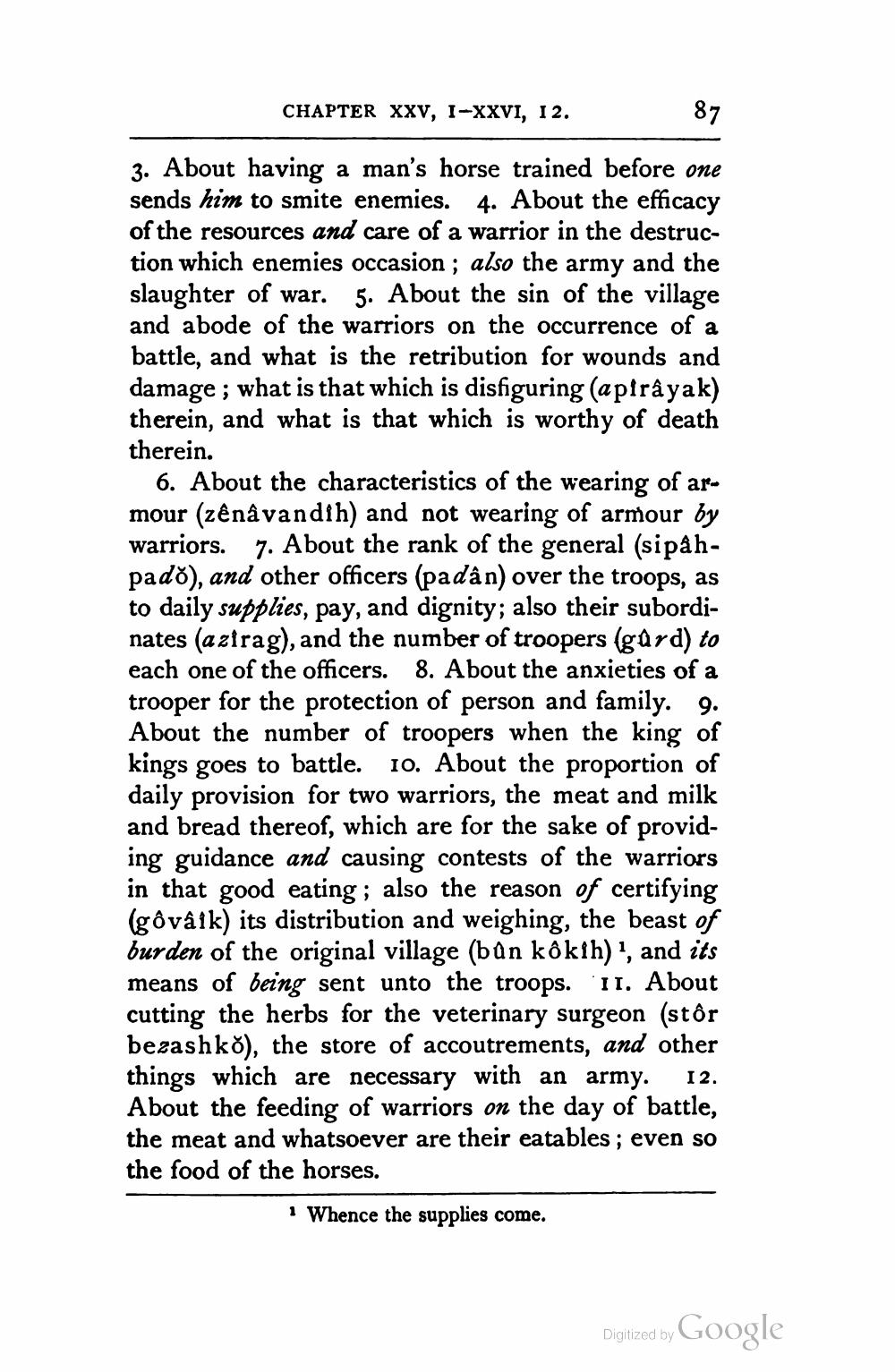________________
CHAPTER XXV, 1-XXVI, 12.
87
3. About having a man's horse trained before one sends him to smite enemies. 4. About the efficacy of the resources and care of a warrior in the destruction which enemies occasion; also the army and the slaughter of war. 5. About the sin of the village and abode of the warriors on the occurrence of a battle, and what is the retribution for wounds and damage ; what is that which is disfiguring (apirayak) therein, and what is that which is worthy of death therein.
6. About the characteristics of the wearing of armour (zênåvandih) and not wearing of armour by warriors. 7. About the rank of the general (sipahpado), and other officers (padân) over the troops, as to daily supplies, pay, and dignity; also their subordinates (aztrag), and the number of troopers (gard) to each one of the officers. 8. About the anxieties of a trooper for the protection of person and family. 9. About the number of troopers when the king of kings goes to battle. 10. About the proportion of daily provision for two warriors, the meat and milk and bread thereof, which are for the sake of providing guidance and causing contests of the warriors in that good eating ; also the reason of certifying (gôvaik) its distribution and weighing, the beast of burden of the original village (bûn kökih), and its means of being sent unto the troops. II. About cutting the herbs for the veterinary surgeon (stôr bezashkö), the store of accoutrements, and other things which are necessary with an army. 12. About the feeding of warriors on the day of battle, the meat and whatsoever are their eatables; even so the food of the horses.
· Whence the supplies come.
Digitized by Google




